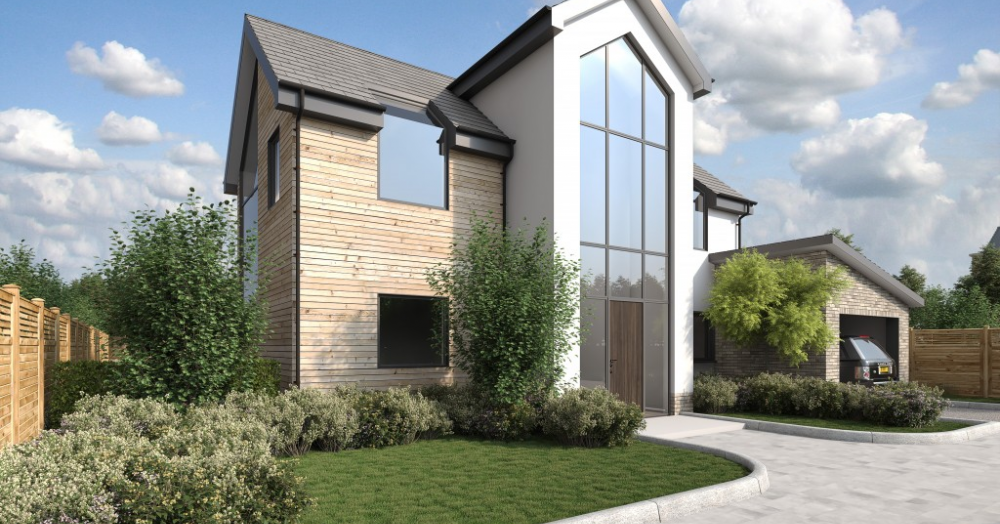
CGI takes on Britain's dream home in a series of stunning photos, but how close is it to your daydream?
Two fifths of us covet a custom-built house, but what would it look like? GoCompare Mortgages has revealed the features most in demand for ‘Britain’s ideal home*’. Working with Marc Sawan, an architect from eye-kon, a visual creation studio, they have designed and built the UK’s ideal home, using CGI.
There’s no place like home and for more than half (52%) it’s a place to seek solace away from the hustle and bustle of everyday life, with a third placing their ideal home in a village and one fifth in a small town. While most desire a slower pace of life, for Londoners, staying connected to city life was important with 70% saying they’d need to live within commuting distance of a big city.
Although a modern, simply designed sustainable home was favoured by more than a quarter (28%), a more traditional route was taken when picking interiors. Over half (52%) selected either a traditional or country house style for their interior.
Along with traditional interior design, 55% preferred a conventional layout. Scottish homeowners were more open to breaking tradition, with a third (33%) picking a mixture of rooms across both floors. Meanwhile, more than 14% of Londoners pushed traditional boundaries even further opting for communal rooms upstairs and bedrooms downstairs.
Naturally storage was an important factor. When it came to selecting additional rooms, the three most sought-after spaces were a garage (46%) a conservatory (40%) and a utility room (36%). The need for storage wasn’t just limited to the house as nearly two thirds selected the option for a storage shed in the garden.
Overall, a fuss-free garden was favoured, with a quarter (24%) opting for simplicity. Yorkshire and the Humber proved the biggest nature lovers with 27% saying they’d want a wildlife-friendly garden, followed by the North East (24%). More than a third wanted a water feature, a quarter craved a pond and 24% splashed out on a hot tub. However, awareness of global warming and climate change seems to be taking effect, with 90% choosing to include eco-friendly features. Solar panels proved the most popular eco-feature with 59% including them in their ideal home - people from Wales, the South West, and the North West were most likely to use them.
Building your own home is something lots of people dream about doing. But, there’s a huge amount to consider from the location to plots of land available, builders and getting relevant insurance. Land isn’t cheap, especially when planning permission has already been granted. Be wary of plots that seem too good to be true! So, how does your dream home compare to the results of this campaign? For more information and to see the ideal home fly through, head to www.gocompare.com/mortgages/the-ideal-home/
*On 20 July 2017, 4media Group conducted an online survey among 2,005 randomly selected UK adults (aged 18 and over).
For more interior and home tips, go to our website or connect with us on Facebook.